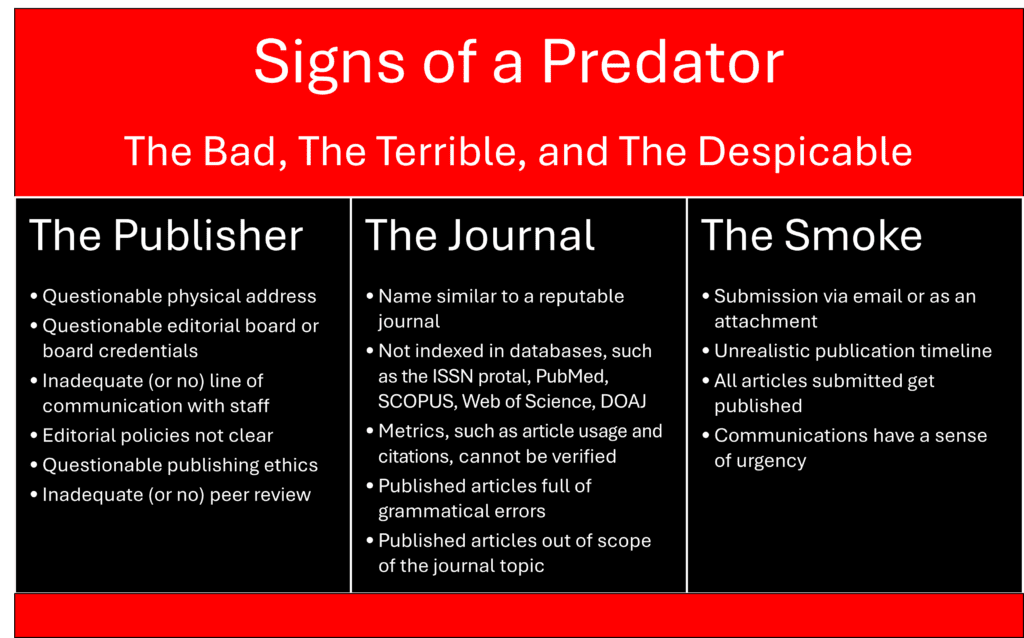
We have previously provided information on what predatory publishers are and how to identify them when deciding where to publish your work. The recent proliferation in journals has caused a perpetual feeding frenzy regarding content, creating a perfect environment for predatory publishers to hunt.
However, knowing where not to submit your work is only the first step in publishing your research. Where to publish your work is a decision that has plagued scholars since the coining of the aphorism “publish or perish.” Finding an accessible, secure, and reputable journal for your research is no small task. Fortunately, there is a vital and legitimate path to publication via professional societies—centralized entities within your field that offer a range of opportunities from which you can benefit as a contributing member. AAI provides that path for immunology and allied fields.

Predatory Publishers – Red Flags
Unlike legitimate society publishers, one of the red flags of a predatory publisher is insufficient communication with journal staff. Often, responses from predatory publishers leave you with more questions than answers. Society publishers have staff who maintain open lines of communication with authors and can answer your questions regarding editorial processes and policies.
Society publishers must clearly communicate with their members about the crucial role that journal staff, editors, and reviewers play in upholding the integrity of the peer review process. Members can serve as reviewers for a journal, a service that safeguards the scientific record by allowing experts to provide constructive feedback on research findings in their field. Journal staff and editors actively monitor the publishing arena to catch predatory entities, such as paper mills. They further safeguard the scientific record by identifying other ethical issues, such as image manipulation and plagiarism. Society editorial board members are rigorously vetted, thus creating a strong, credible, and reliable resource for the community.
Additionally, money invested into publishing in a society journal via publication charges supports member benefits, such as conferences, funding opportunities, advocacy and outreach opportunities. Society publishing opens the door to multiple avenues of promoting your research at conferences, on social media, and in journal collections. Importantly, authors can be confident they have the organization’s support in their research endeavors.
AAI urges members and journal readers to submit their research findings to The JI and IH, to remain informed on predatory practices, and to educate trainees on the tell-tale signs of a predatory publisher. For more information, visit the AAI Predatory Publishing FAQs website.




